
When Rupert and Kristin Isaacson saw Rowan, their son with...

Minister for Enterprise and Knowledge Àngels Chacón highlights that “over...
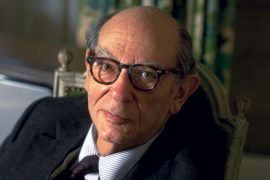
Not all philosophers know how to distance themselves from abstraction...

There are things that only happen once in a lifetime....

Research data confirm that physical exercise inactivity is a serious...
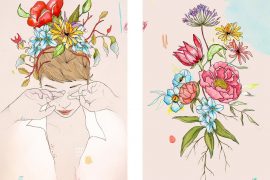
Take a deep breath. Alright? We are going to talk...

Researchers from IBEC and UB have discovered that the way...
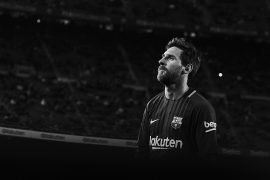
The direct relationship between intelligence and success applies to any...

Then, Agbar becomes the first large corporation that restores its...
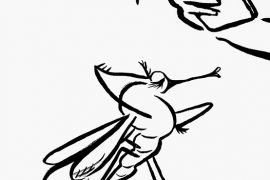
“Science is alive and it’s part of culture. Science is...

Música clásica sobre la arena de la playa en dos...

The first session of the cycle on the regatta organized...

The hospital's managing director, Manel del Castillo, and the pharmaceutical...

Generalitat y Ayuntamiento impulsarán dos equipamientos de 'Casa de les...

Leticia Beleta, director of Alexion Pharmaceuticals in Spain and Portugal,...

We all have a friend who never leaves the Gràcia...

Barcelona director opts for Best International Film with 'La sociedad...

The hotel and industrial sectors softened the market's decline last...

The technology company, with a workforce of 35 employees and...

“The women of yesteryear were strong and had to fight...
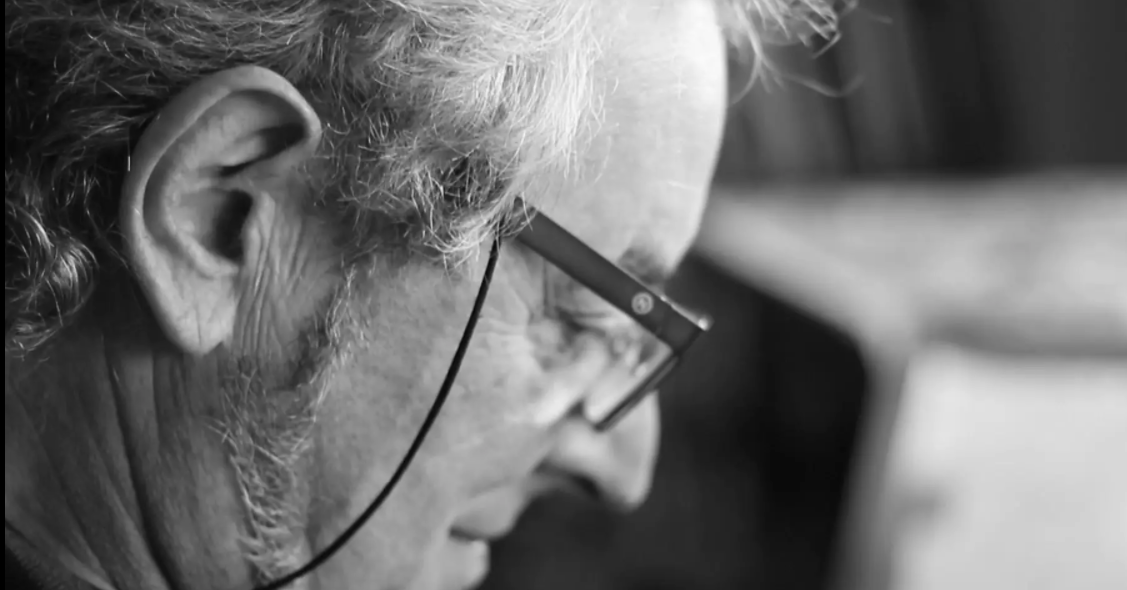
[dropcap letter=”I”]
look around. Poets, novelists, musicians, painters, journalists, professors. None of them seems to have anything else to do but wait, with mounting, almost childish, impatience, for Pere Rovira, a great catalan poet, to cross the door and show them his surprise. The invisible thread that ties us together is the friendship with a man that will soon turn 70 and who, at any time, will emerge in the summer backlight from the windows of a restaurant in Delta.
A few minutes before his arrival, I start looking into the anxious gazes of the audience. From their faces, I infer that Pere has been their mentor, well, at least for many of them. In this world, university lecturers abound but there is only a handful of mentors. He is someone who has absorbed vast amounts of literature which he now pours into his lessons, writings, and the minds of his students and, in turn, the students from his own students. Pere taught us a simple idea: that we still need to read and write; once we learned that, we then understood that poetry and literature have an architecture, and that any creation must be built up. A necessary artifice to keep emotions on a short leash. A simple and yet hard idea for a young impetuous mind. Then, he made us acquainted with poetry to guide us through this building process. Memorable lessons. For that reason, there is still a silent classroom waiting for the end of his latest lesson.
Before seeing astonishment and happiness on his face, I notice from his serene eyes that he is a poet. Thinking back, I discover in them more than one trait that makes me understand what kind of a poet is: we make part of our vital prose our own creations; from this moment, these creations stop being owned by us. Or rather, we cannot distinguish anymore, and that is poetry. Stanzas that one sporadically shares, just like a comet glowing in the sky: one writes a book every 7 years after completing an orbit around one’s life and one’s own readings. “Lucid” poetry, as people who know more about life than letters commonly say.
In the meantime, before hugs of love and appreciation embrace him in recognition, I notice in his students part of his novels. Because his novels tend to have that effect on people: something in-between tenderness and harsh reality. Or from the history stories that he makes up. Who would have ever predicted that a pickpocket’s son would make us laugh and cry, that he would be able to transmit the pride and outrage of those who lost the war, the wisdom and the town’s gossiping. His novels, a different kind of poetry.
In a while, the moment of calm and reflection will soon come. Pere will look at each and every one of us before indulging in his rice, while many of us look forward to the sit-down talk to savour his friendship, the moment of tasting the intelligence of a discussion, his sharp comments, finding the overwhelming vehemence of Rovira unchained. This is the moment when the lived anecdote can become a chapter. And, in that, he can be found in a region encompassing books, music and cinema. One where life and art encounter.
Even tears will appear to brand with fire the fact that many people love him and are capable of driving a long distance only to offer them a book that contains part of him, part of his whole that we have acquired from him. Pages full of words, drawings, images. Decades of poetry, jazz, urban nights, well set-out tables, the occasional disappointment, a few losses, so much is gained. And now I see how his children have set the entire scene like one who creates a sonnet. This is one of the presents he doesn’t see coming. The other gift is the happy complicity of the person who has convinced him to take the bait, Celina, his wife.
At the end of the afternoon, we get together in a snapshot against the blue sky meeting the green rice fields. A crowded picture of those who this man has crossed paths with along the way. After all, the full picture of a happy day. But now that we feel him closer to the gateway, I cannot help feeling that I have been lucky enough to have met one of the best writers that this country has ever given. The chronicle of a friendship.

[dropcap letter=”I”]
look around. Poets, novelists, musicians, painters, journalists, professors. None of them seems to have anything else to do but wait, with mounting, almost childish, impatience, for Pere Rovira, a great catalan poet, to cross the door and show them his surprise. The invisible thread that ties us together is the friendship with a man that will soon turn 70 and who, at any time, will emerge in the summer backlight from the windows of a restaurant in Delta.
A few minutes before his arrival, I start looking into the anxious gazes of the audience. From their faces, I infer that Pere has been their mentor, well, at least for many of them. In this world, university lecturers abound but there is only a handful of mentors. He is someone who has absorbed vast amounts of literature which he now pours into his lessons, writings, and the minds of his students and, in turn, the students from his own students. Pere taught us a simple idea: that we still need to read and write; once we learned that, we then understood that poetry and literature have an architecture, and that any creation must be built up. A necessary artifice to keep emotions on a short leash. A simple and yet hard idea for a young impetuous mind. Then, he made us acquainted with poetry to guide us through this building process. Memorable lessons. For that reason, there is still a silent classroom waiting for the end of his latest lesson.
Before seeing astonishment and happiness on his face, I notice from his serene eyes that he is a poet. Thinking back, I discover in them more than one trait that makes me understand what kind of a poet is: we make part of our vital prose our own creations; from this moment, these creations stop being owned by us. Or rather, we cannot distinguish anymore, and that is poetry. Stanzas that one sporadically shares, just like a comet glowing in the sky: one writes a book every 7 years after completing an orbit around one’s life and one’s own readings. “Lucid” poetry, as people who know more about life than letters commonly say.
In the meantime, before hugs of love and appreciation embrace him in recognition, I notice in his students part of his novels. Because his novels tend to have that effect on people: something in-between tenderness and harsh reality. Or from the history stories that he makes up. Who would have ever predicted that a pickpocket’s son would make us laugh and cry, that he would be able to transmit the pride and outrage of those who lost the war, the wisdom and the town’s gossiping. His novels, a different kind of poetry.
In a while, the moment of calm and reflection will soon come. Pere will look at each and every one of us before indulging in his rice, while many of us look forward to the sit-down talk to savour his friendship, the moment of tasting the intelligence of a discussion, his sharp comments, finding the overwhelming vehemence of Rovira unchained. This is the moment when the lived anecdote can become a chapter. And, in that, he can be found in a region encompassing books, music and cinema. One where life and art encounter.
Even tears will appear to brand with fire the fact that many people love him and are capable of driving a long distance only to offer them a book that contains part of him, part of his whole that we have acquired from him. Pages full of words, drawings, images. Decades of poetry, jazz, urban nights, well set-out tables, the occasional disappointment, a few losses, so much is gained. And now I see how his children have set the entire scene like one who creates a sonnet. This is one of the presents he doesn’t see coming. The other gift is the happy complicity of the person who has convinced him to take the bait, Celina, his wife.
At the end of the afternoon, we get together in a snapshot against the blue sky meeting the green rice fields. A crowded picture of those who this man has crossed paths with along the way. After all, the full picture of a happy day. But now that we feel him closer to the gateway, I cannot help feeling that I have been lucky enough to have met one of the best writers that this country has ever given. The chronicle of a friendship.
